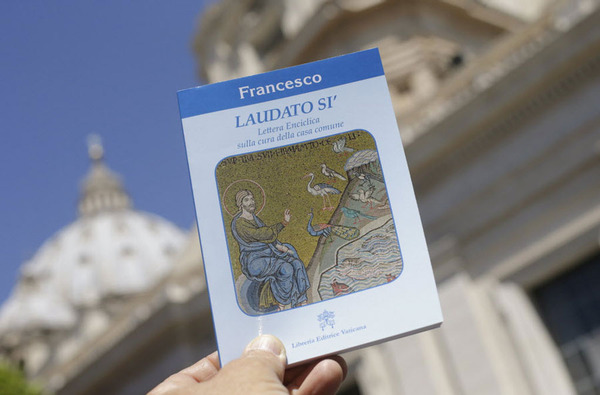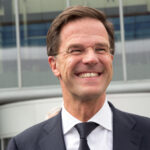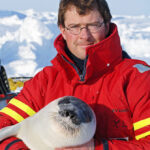De nieuwe Pauselijke encycliek, die gisteren is verschenen, heeft inmiddels internationaal tot veel commentaren aanleiding gegeven, zowel instemmende als meer kritische. De prominente aandacht die de Paus aan het milieu en het klimaat schenkt (zij het niet meer dan enkele procenten van een tekst van bijna 200 bladzijden), waarbij hij in nauwelijks bedekte termen lobbyt voor een positieve uitkomst van de klimaatconferentie in Parijs in december dit jaar, heeft hem veel krediet bij de milieubeweging opgeleverd. Omgekeerd hebben de meer kritische commentatoren in dit verband fijntjes herinnerd aan de affaire Galileo Galilei, waarin de RK Kerk zich eveneens anti– wetenschappelijk opstelde.
Ik pik er enkele commentaren uit.
Onder de titel, ‘Swiss ‘Weltwoche’ Magazine Fires At Activist Encyclical … ”Somewhere Galileo Is Chuckling”’, rapporteert Pierre Gosselin op zijn blog:
The latest 17 June 2015 edition of Weltwoche from Switzerland has a commentary on the Vatican and its encyclical on climate titled: “A Matter of Faith“. The commentary believes the Vatican is out of place with Its recent encyclical on climate science, reminding readers that the Vatican hardly has a stellar record when it comes telling Catholics what true science really is, and that today It is wrong with Its claim there is a consensus on the issue. …
The Weltwoche article writes in its introduction: With an encyclical the Pope is attempting to teach correct climate policy. The Catholic Church has long since always proven its sense for true science. Somewhere Galileo is chuckling.”
Weltwoche recounts the Church’s debacle surrounding Galileo, writing that it took the Catholic Church over 300 years to apologize for having falsely accused the 17th century physicist, who claimed the Church had been wrong in thinking the earth was the center of the universe. …
Yet under Pope Francis the Church appears to have learned nothing from its long history of intellectual blunders, and Its Little Ice Age and bad-weather witch-hunts. Weltwoche writes:
Pope Francis is now sending the encyclical “Laudato Si” to his bishops, which reads as the Amen to the reporters of the IPCC and the capitalism critics, such as Naomi Klein.”
Weltwoche describes how Pope Francis claims there is a “scientific consensus” and that as a result “mankind has to change its lifestyle“.
Lees verder hier.
Ook Nigel Lawson, voormalig minister van Financiën onder Margaret Thatcher en voorzitter van de ‘Global Warming Policy Foundation’ (GWPF), liet zich uiterst kritisch uit over de houding van de RK Kerk tegenover het klimaat en het klimaatbeleid. Onder de titel, ‘Carbon week: The church of climatism’, schreef hij in de Canadese Financial Post:
Throughout the ages the weather has been an important part of the religious narrative.
Climate scientists and their hangers–on have become the high priests of a new age of unreason.
How is it that much of the Western world, and Europe in particular, has succumbed to the self-harming collective madness that is the climate change orthodoxy? It is difficult to escape the conclusion that climate change orthodoxy has in effect become a substitute religion, attended by all the intolerant zealotry that has so often marred religion in the past, and in some places still does so today.
Throughout the Western world, the two creeds that used to vie for popular support – Christianity and the atheistic belief system of Communism – are each clearly in decline. Yet people still feel the need both for the comfort and for the transcendent values that religion can provide. It is the quasi-religion of green alarmism and global salvationism, of which the climate change dogma is the prime example, that has filled the vacuum, with reasoned questioning of its mantras regarded as little short of sacrilege. ….
Hij stelt dat vele klimatologen zich als hogepriesters van een nieuw tijdperk van obscurantisme opstellen. Het beleid dat hieruit voortvloeit is in hoge mate immoreel, mede omdat het tot een massale overdracht van inkomen van arm naar rijk leidt via de subsidiëring van hernieuwbare energie.
… I am slightly surprised that it is so strongly supported by those who consider themselves to be the tribunes of the people and politically on the Left. I refer to our system of heavily subsidizing wealthy landlords to have wind farms on their land, so that the poor can be supplied with one of the most expensive forms of electricity known to man.
However, the greatest immorality of all concerns those in the developing world. It is excellent that, in so many parts of the developing world – the so-called emerging economies – economic growth is now firmly on the march, as they belatedly put in place the sort of economic policy framework that brought prosperity to the Western world. Inevitably, they already account for, and will increasingly account for, the lion’s share of global emissions.
But, despite their success, there are still hundreds of millions of people in these countries in dire poverty, suffering all the ills that this brings, in terms of malnutrition, preventable disease, and premature death. Asking these countries to abandon the cheapest available sources of energy is, at the very least, asking them to delay the conquest of malnutrition, to perpetuate the incidence of preventable disease, and to increase the number of premature deaths.
Global warming orthodoxy is not merely irrational. It is wicked.
Lees verder hier.
Paradoxalerwijs is dat een uiterst links standpunt voor iemand die tot rechts wordt gerekend, maar het is een standpunt dat door vele klimaatsceptici wordt gedeeld.
Een minder polemisch, neutraler, meer beschrijvend commentaar, van Joe Ronan, kunnen we aantreffen op de website van Bishop Hill.
Onder de titel, ‘Laudato Si – a cry for the poor’, schreef hij:
Why is Pope Francis writing about climate change? Because he cares for the poor, and wants us all to look at how we use the resources of the world. His objective is to ask each of us to look at how we use the resources available to us, and how to be good stewards of creation. Whether we consider ourselves as owners or tenants of this planet we are asked to use it’s bounty to the good of all, and to avoid laying it waste to the detriment of our brothers and sisters.
He looks at a number of ways in which the poor more than most suffer from environmental damage that man has control over. …
The climate comes in at paragraph 23 and here the leaked paragraphs that have had such wide coverage are reasonably accurate. Climate is a common good, and science indicates that man is having some effect on this. The language is sufficiently vague that I doubt he’ll end up in a Galileo scenario of pinning his colours to a sinking ship, but there is no doubt that the rather partial advisers he has had have coloured the thinking to a very large extent. Paragraph 24 provides perhaps the most obvious slip up, when it suggests “If present trends continue, this century may well witness extraordinary climate change and an unprecedented destruction of ecosystems, with serious consequences for all of us”. There is no inkling that the pause has been mentioned to the Vatican ….
Ronan is kritisch maar eindigt per saldo toch met een positieve noot.
I would encourage you all to read the final section, even those of you not of a religious inclination. It deals with releasing real humanity from within ourselves, and perhaps is the type of writing that reflects most closely Francis’ agenda – the best flourishing of the human person, and the building of a good society. He recognises that the things that we do to ‘save the earth’ will not change the world, but will call forth from us each “a goodness that spreads”.
It is also a call to joy and completeness as humans, and a call to engage with those around us.
This is a flawed document in many ways: it has had input from a limited range of views, and on the technical side is badly referenced. It paints complex issues in simplistic terms and ignores the whole history of how technological development has been of enormous benefit to mankind.
What it does succeed in doing however is to provoke each of us to consider inside ourselves how we relate to our fellow travellers on this planet. Even though the letter is addressed to the whole world, it’s real target is you. I recommend it to you all, flawed and incomplete as it is, as a look into our own minds, and invites us to consider again our common humanity.
Lees verder hier.
De Engelse versie van Laudato Si is hier te vinden.
Voor mijn eerdere bijdragen over klimaat en aanverwante zaken zie hier, hier, hier, hier en hier.







Zowel van de RK als de GK moet ik niets hebben: het lijden zuivert niet, het doet pijn.
Lawson dringt door tot de kern: de armen zijn de dupe.
Overigens zie ik mogelijkheden: vanaf heden kan er worden gebeden tegen klimaatverandering. De subsidies kunnen geschrapt.
Opvallend dat Franciscus kernenergie niet aanprijst als oplossing.
Maar goed, de RK kerk is de concurrentie met milieubewegingen aangegaan. Franciscus of van Soest of Rotmans, één pot nat.
Nu maar hopen dat de nieuwe ijstijd nog even op zich laat wachten.
Deze religie is niet van bidden en het komt goed. Deze religie is van (belasting) betalen en wij zorgen er met subsidies (aan onszelf) voor dat de rampen niet over ons komen.
David,
De goede reden waarom de paus kernenergie niet aanraad is natuurlijk omdat kernenergie uit een nieuwe centrale een van de duurste vormen van energie is.
Verder heeft een land zonder hoogspanningsnet natuurlijk niets aan een kerncentrale en arme landen hebben natuurlijk ook nauwelijks de goed opgeleide mensen die zo’n centrale kunnen bedienen of bouwen.
On Topic,
Hans als AGW een “geloof” is waar zijn dan de wetenschappelijke artikelen die daar aan twijfelen? En dan natuurlijk wel de wetenschappelijke artikelen
Kernenergie is niet een van de duurste vormen van energie het is zelfs de goedkoopste. http://climategate.nl/2014/08/28/volgende-groene-droom-spat-uiteen-energie-opslag-maakt-groei-duurzame-energie-steeds-duurder/
Volgens mij heb ik laatst nog eens becijferd dat wind op zee twee keer zo duur is als een kerncentrale die dezelfde hoeveelheid stroom levert.
Hans,
Kan je die berekening eens laten zien?
Gemini windpark: bouwkosten 2.8 miljard, opgesteld vermogen 600 MW capaciteitsfactor 40%, is EUR 13000 / kWe, kerncentrales staan op de helft.
Her doet me deugd weer een Janos te lezen!
Janos,
Je vraagt steeds maar naar de bekende weg.
Hans,
inderdaad ik blijf vragen om een wetenschappelijke onderbouwing van jouw mening dat de klimaat gevoeligheid zeer laag is.
En tot dat je die kan geven twijfel ik aan jouw stukjes. Verder is het een feit dat het vragen naar wetenschappelijke onderbouwing van jouw mening meestal (ik zou zeggen in 97% van de gevallen) op niets uitloopt
Janos,
Je bent zo bedreven in het opzoeken van literatuur op internet. Waarom heb je deze link dan over het hoofd gezien?
https://www.masterresource.org/debate-issues/low-climate-sensitivity-accumulating/
Op grond van ‘inside information’ van wetenschappers die zich hiermee intensief bezig houden, denk ik persoonlijk dat de klimaatgevoeligheid nog wat lager ligt. Maar hun publicaties zijn, voor zover mij bekend, nog niet verschenen.
Met betrekking tot de klimaatboodschap van de paus lijkt het volgende me ook interessant.
http://ncronline.org/news/global/japanese-bishops-ask-francis-warn-against-nuclear-power-his-encyclical
Vooralsnog lijkt de paus er niet voor te hebben gekozen om de merkwaardige antikernenergieaanbevelingen van de Japanse katholieken over te nemen, maar mogelijk verklaard dit deels waarom de paus wel heeft besloten om ’technofix’ oplossingen (waaronder dus ook kernenergie) min of meer af te wijzen als geloofwaardige oplossing voor broeikasgasemissies. Ik vind dat jammer, omdat ik technofix oplossingen juist als essentieel beschouw.
Het blijft merkwaardig kernenergie niet als manna te beschouwen, nuclair staat nader tot de schepping (oerknal) dan elke andere vorm van energie.
De zwarte doos van Pandora is gevonden en kunnen we toch inmiddels uitlezen?
Een oplossing is de grootste vijand van de kerk, of het nu de groene of de katholieke is. Er moet angst zijn, zonder angst geen revenuen. De propaganda van de groene kerk is overweldigend, de bevolking is gehersenspoeld. De simpelste rekensommen worden niet gemaakt.
Vooruit dan: eentje:
In het kader van een EUblabla duurzaambla-programma gaat Eindhoven duurrzaam doen. Ze gaan windenergie winnen uit de luchtverplaatsing door startende vliegtuigen, Juist ja….. en dan die prachtige zonnepanelen die 60kg/m2 per jaar besparen.
Voor 1 retourvlucht van een volle Boeing 737 naar Spanje heb je een jaar lang 1800m2 zonnepanelenstroom nodig om de CO2 te compenseren. De lolbroeken.
Het Vaticaan is altijd warm voorstander van kernenergie geweest (en fel tegenstander van kernwapens) omdat kernenergie met name voor de armen zo voordelig is. Volgens het Vaticaan biedt kernenergie namelijk een uitgelezen kans om middelen vrij te spelen voor armoedebestrijding.
Het lijkt erop dat Fukushima heeft gezorgd dat het Vaticaan opgeschoven is van positief naar neutraal over kernenergie. Naar verwachting (ik ben altijd optimistisch) zal het Vaticaan echter vroeg of laat weer teruggaan naar positief voor kernenergie.
Klimaathysterie is nu officieel religie geworden.
@Janos:
[ omdat kernenergie … een van de duurste vormen van energie is.]
afgezien van het feit of dit juist is: kernenergie levert voldoende energie waar andere bronnen dat niet kunnen. Eens (over 200 jaar) is het de dood of de gladiolen.
Maar let op: dan zijn er handige compacte reactortjes te koop die een grid overbodig maken. Ziehier de (enige) weg naar duurzaamheid.
Bij vorige gelegenheid heb ik mij wel uitgelaten over Schellenhoebert.
Wat betreft de paus hou ik mij graag nog wat op de vlakte.
Iedereen heeft zo zijn voorzorgprincipes.
” …. voor je kan nooit weten” zoals mijn moedertje altijd zei.
Hans Erren schrijft:
“Gemini windpark: bouwkosten 2.8 miljard, opgesteld vermogen 600 MW capaciteitsfactor 40%, is EUR 13000 / kWe, kerncentrales staan op de helft.”
Is die 40% niet aan de hoge kant? En zijn de kabels, de (onbeheersbare) wissel/gelijk-stroom stations, de verzakkingen en het na 15 jaar opruimen van de rotzooi meegenomen? De schade veroorzaakt door het delven van de hartstikke rare aardmetalen in verre vreemde landen; verdisconteerd? En hoe zit het met de rommel die door corrosie in het water komt? De schade voor de visserij en zwemvissen in het algemeen? Dode vogels, hangt daar een prijskaartje aan?
En wat te denken van de kosten om de netspanning constant te houden.
dit is inclusief aansluitkosten, de winingskosten opruimkosten en milieuproblemen heb je ook bij uranium. De wind is gratis maar de stroom niet.
@Janos Hier is informatie over gevoeligheid: http://www.groenerekenkamer.nl/klimaatgevoeligheid/
en: http://www.groenerekenkamer.nl/2356/persbericht-rapport-een-gevoelige-kwestie-hoe-het-ipcc-goed-nieuws-klimaatverandering-verborg/
Let wel, dit laatste rekent met de cijfers van het IPCC zelf. Vandaar dat het IPCC deze uitkomst achterhield als onwelgevallige waarheid.
In aansluiting op het commentaar van Jeroen Hetzler nog even dit:
De cijfers van de klimaatgevoeligheid uit dit rapport zijn aan de hoge kant omdat de auteurs hebben aangenomen dat alle (ik herhaal: alle) opwarming aan de menselijke uitstoot van CO2 zou dienen te worden toegeschreven. Maar het IPCC doet dat zelf niet. De auteurs zijn dus héél genereus geweest ten gunste van de AGW-hypothese.
Hans,
Als ik je link doorklik dan kom ik o.a. terecht bij het rapport van Curry & Lewis. In de abstract lees ik voor de klimaatgevoeligheid: 1.05–4.05 (5 – 95%) En dat is stevige opwarming. Ik heb het idee dat sceptici slechts willen kijken naar de ‘best estimate’ In dit rapport is deze 1.64 graden. De bovengrens wordt genegeerd of deze niet bestaat. Klopt dat?
Herman, Lewis en Curry zijn in ieder geval eerlijk over de fouten marge. Iets waar alarmisten een voorbeeld aan kunnen nemen. Daarmee is een best estimate geven heel valide. (het verbaast niet dat jij alleen naar de bovengrens kijkt want we zouden eens moeten toegeven dat het allemaal wel mee valt).
Luis in de Pels,
Met de mening van alarmisten hou ik mij in deze discussie totaal niet bezig. Wel met rapporten van wetenschappers zoals Lewis en Curry. En al die wetenschappers geven als het om klimaatgevoeligheid gaat ‘altijd’ onzekerheidsgrenzen aan. Tenminste het 17 -83% interval, meestal ook het 5- 95% interval. En ik kijk helemaal niet alleen naar de bovengrens. Ik zoek eerst overeenstemming over wat er staat en wat dat dan betekent. Als we het daar over eens zijn kan er pas een discussie zijn wat we daar vervolgens mee doen. En als iemand zegt, ik kijk slechts naar de ‘best estimate?’ Mij best, maar dan is dat tenminste duidelijk en kan je het daar over hebben.
Hetzler,
Indien je de link van Hans Labohm hier kort boven volgt en dan vervolgens doorklikt dan kom je o.a. hier uit op het gastblog van Nick Lewis op het blog van Steve Mcintyre.
http://climateaudit.org/2014/09/24/the-implications-for-climate-sensitivity-of-ar5-forcing-and-heat-uptake-estimates-2/
Ga vervolgens naar tabel 1 onderste regel Wat zie je? Ik zie stevige opwarming, jij? Wat is dan het verhaal over het achterhouden? Dat gaat er over dat het IPCC geen best estimate heeft afgegeven. Dat is alles.
Omdat ze het niet eens konden worden, toch?
M.a.w. er is geen consensus over een gevoelige snaar.
Boels,
Dat klopt, geen overeenstemming, en dus is het weggelaten. In de notes (kleine lettertjes) lezen wij : ” No best estimate for equilibrium climate sensitivity can now be given because of a lack of agreement on values across assessed lines of evidence and studies. “
Je geloof moet zeer sterk zijn wil je in de “feiten” van in de bijbel, de Paus en het Roomse episcopaat kunnen geloven. Een mij zeer sympathieke gelovige collega omschreef geloof als het “niet meer de onnodige vragen stellen” . Ik kon hem dat bevestigen. Het doet mij ook sterk aan de huidige dogmatische klimaatreligie denken: “niet meer de onnodige vragen stellen” . We hebben “consensus”. Feit is dat er consensus is, dat er juist over klimaat, AGW, CO2-gevoeligheid bepaald GEEN consensus is, en dat er toenemend consensus is dat de Paus volledig irrelevant is in de wetenschap, maar helaas invloedrijk is en ’s werelds onterecht respect verdient. Zolang Paus, Rome etc. tegen geboortebeperking is, is en blijft het een aan de middeleeuwen gekleefde geloofsgemeenschap.
De RK kerk heeft in WO2 geen stelling genomen tegen het fascisme en nationaal socialisme. Daarmee hebben ze zich gediskwalificeerd.
Dat Franciscus nu aanhaakt bij een hype is wederom een grote vergissing.
Ook geeft hij, in tegenstelling tot zijn woorden, de armen nog een trap na.